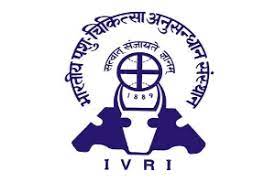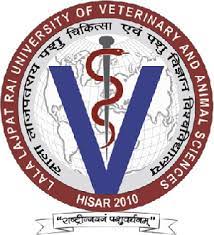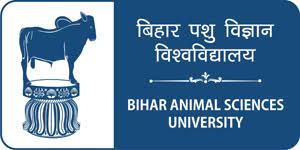The Ph.D. in Veterinary Extension Education is a three-year doctoral degree program related to animal health care and agriculture. It emphasizes analysis and detailed knowledge of veterinary science. Having completed this program, you will be able to work in a number of sectors, including research and teaching. It is also highly valued in many different fields. It is not uncommon for veterinarians to earn this doctoral degree.
A doctoral degree in this field focuses on educating future veterinary professionals in the field of livestock and poultry farming. The coursework typically covers several fields of veterinary science, such as Animal Nutrition, Wildlife Science, Livestock Product Technology, Understanding Animal Genetics and Breeding, and the Science of Agricultural Development. In addition to teaching and research, this degree prepares graduates for future work as farm managers and agricultural policymakers.
The program is designed to prepare a veterinarian for a variety of positions in the agricultural sector. As a doctoral candidate, you will focus on several fields of veterinary science, including Animal Nutrition, Wildlife Science, Livestock Product Technology, and Understanding of Animal Genetics & Breeding. This will prepare you for future employment in a variety of positions in the industry. This doctoral degree will give you a valuable edge in a field that is expanding rapidly.
Ph.D. in Veterinary Extension Education Eligibility
Candidates who want to take admission in Ph.D. must have a post-graduate degree in Veterinary Extension Education and its relevant discipline with at least 55% marks from a recognized university and must have passed the national level entrance examination or university level entrance examination. National level entrance exams like UGC NET / UGC CSIR NET / GATE / SLET or University entrance exams consist of written tests and personal interviews.
The Benefits of Ph.D. in Veterinary Extension Education
Many veterinarians choose to pursue graduate study because it gives them the opportunity to work independently in the field, receive a research grant, and develop a network of collaborators. However, the cost of postgraduate study discourages many veterinarians from pursuing a Ph.D. In 2004, the average educational debt for new graduates was $81,052. Eighty-six percent of graduates had incurred more than $40,000 in debt, and 86% had incurred it during their CVM programs.
With a Ph.D. in veterinary science, veterinarians can apply their research expertise to address public health problems and improve agricultural production. They can also work on problem cases with other practitioners and provide educational programs for poultry and livestock owners. This type of career field often includes formal continuing education programs for veterinary professionals and offers special training sessions to respond to animal health problems. A Ph.D. in veterinary science prepares veterinarians for a variety of jobs, from agronomists to wildlife and plant scientists.
A doctoral degree in veterinary science offers the opportunity to work in a variety of fields. A Ph.D. in animal husbandry, for example, offers a thorough knowledge of the field. It covers several veterinary disciplines, such as Animal Nutrition and Biochemistry to Livestock Products Technology, and Understanding of Animal Genetics. In addition to the theoretical knowledge, students will be prepared for practical applications of their studies. For example, they will be able to develop practical skills in fodder enrichment, milk products, and weaning calves.
The Career Opportunities of Ph.D. in Veterinary Extension Education
The Ph.D. in Veterinary Extension Education is a 3-year doctoral degree program that connects the practical aspects of animal care with the study of academic interpretation. Graduates gain extensive knowledge and skills in veterinary science. These skills and knowledge are useful in a variety of sectors, including academic research, teaching, and private consulting. A Doctorate in Veterinary Extension will also open up career opportunities in many sectors, including agricultural production, food and fiber production, animal health, and public policy.
As a graduate of the program, you can pursue a variety of careers in agriculture, animal health, and food science. There are plenty of jobs in this industry for individuals with a background in animal science. The food processing industry employs people with degrees for jobs ranging from livestock buying to quality control specialists and sales personnel. Salaries range from $35,000 to $105,000. These positions also provide additional benefits, such as health insurance, retirement investments, and vehicles.
Graduates can also work in industries that employ veterinarians and other veterinarians. Many pharmaceutical companies, livestock products, and feed companies need highly trained people to improve the efficiency of animal welfare. Some graduates decide to pursue careers in human or animal health and care, including medicine. The salary ranges from $28,000 to $120,000 and may even provide you with a health insurance policy, retirement investments, and a vehicle.
The Future Scope of a Ph.D. in Veterinary Extension Education
The Ph.D. in Veterinary Extension Education is a three-year doctoral-level degree. This doctorate program focuses on detailed knowledge and skills in veterinary science. Graduates of this doctoral program have many job prospects in various fields, such as animal care, livestock management, and research. There are several advantages to earning a Ph.D. in Veterinary Extension Education. These benefits include:
The future scope of a Ph.D. in Veterinary Extension Education is bright, as the field is largely focused on applied research. This doctorate will serve as an asset in many careers. Students pursuing this degree must complete an entrance examination that is administered at the national level. The university's entrance exam consists of a written test and a personal interview. Once accepted, applicants can begin working on their dissertations.
The application process is competitive. Students should have an undergraduate degree and a master's degree in animal science. The Ph.D. application process will require a statement of teaching philosophy and a curriculum vitae. Applicants with a Doctorate degree are also exempt from taking the entrance test. Those applicants who are foreign-born, applicants should have a strong grasp of the English language.
Ph.D. Research Programme duration
The Ph.D. in Veterinary Extension Education course is a minimum of 3 years and a maximum of 5 min duration. This depends on the university offering the course.
Fees for research program for Veterinary Extension Education
The average fee for Ph.D. in Veterinary Extension Education degree is between INR 50000 and INR 500000.
 5 Years
5 Years
 PhD
PhD
 Research
Research
















 back
back